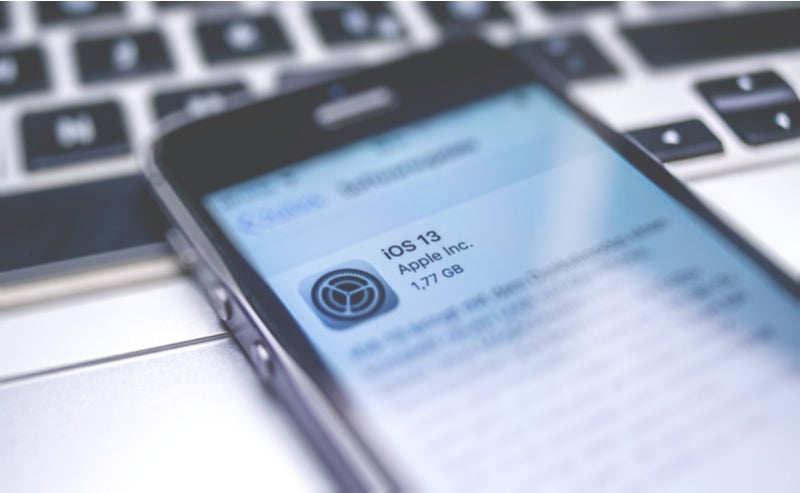New privacy features will enable Apple to differentiate its product offering from rival Google.
The iOS 13 has had a rocky start regarding security, but this should not be a distraction from the major move it embodies for Apple. Security issues and bugs in Apple’s latest iPhone software release have deflected interest from key privacy features which pit Apple against their rivals. The features include permission requests for location services and background apps which track users’ activities. This will alert users to covert data-gathering on their devices.
Increased consumer awareness of data-gathering by third-party apps which trade on precise knowledge of user whereabouts and personal tastes will deal a blow to data-kingpins Google and Facebook. Of the headline privacy features introduced by Apple, two, in particular, appear to be directly targeted at these two competitors. Messaging apps can no longer collect device data in the background, and location tracking has been limited.
Facebook uses its WhatsApp and Messenger apps to massively extend its surveillance of user’s devices outside of its social media platform, and Apple is flagging this up for users.
Google, meanwhile, will reveal any residual location tracking from its Maps and other services complete with geographical details and an opt-out function.
Essentially independent from targeted-ad revenue, Apple can add privacy features across its pre-existing product portfolio with close to zero inconvenience to its own business model, while causing a major inconvenience for competitors.
Also in the firing line of Apple are a whole host of third-party apps which act like cookies for smartphones, carrying out their own smaller-scale surveillance. Measures against these apps include single-instance permission prompts for location services, Bluetooth and WiFi tracking, and the new Sign In With Apple feature. Single-instance permissions will ensure that apps only track users’ locations and device activity for specific operations. Trackers will not be allowed to run in the background after an app has been closed.
How well do you really know your competitors?
Access the most comprehensive Company Profiles on the market, powered by GlobalData. Save hours of research. Gain competitive edge.

Thank you!
Your download email will arrive shortly
Not ready to buy yet? Download a free sample
We are confident about the unique quality of our Company Profiles. However, we want you to make the most beneficial decision for your business, so we offer a free sample that you can download by submitting the below form
By GlobalDataSign In With Apple is one privacy feature that brings Apple up-to-date with its competitors, generating single-use login details to bypass third-party apps that request users’ email addresses. Whilst not directly targeting its competitors, these features may be even more significant for Apple. They could set new privacy expectations for app developers, with Apple setting the standard. Apple is delivering on promises originally made when it entered the services sector with Apple Pay. Continuing to deliver will distinguish it from Google in particular as that company pushes into the mobile devices market.
However, in challenging fellow heavyweights, Apple is not immune to scrutiny, making this an even bolder step. For example, an exposé of invasive monitoring of Siri commands has put Apple in the privacy spotlight.









Related Company Profiles
Apple Inc